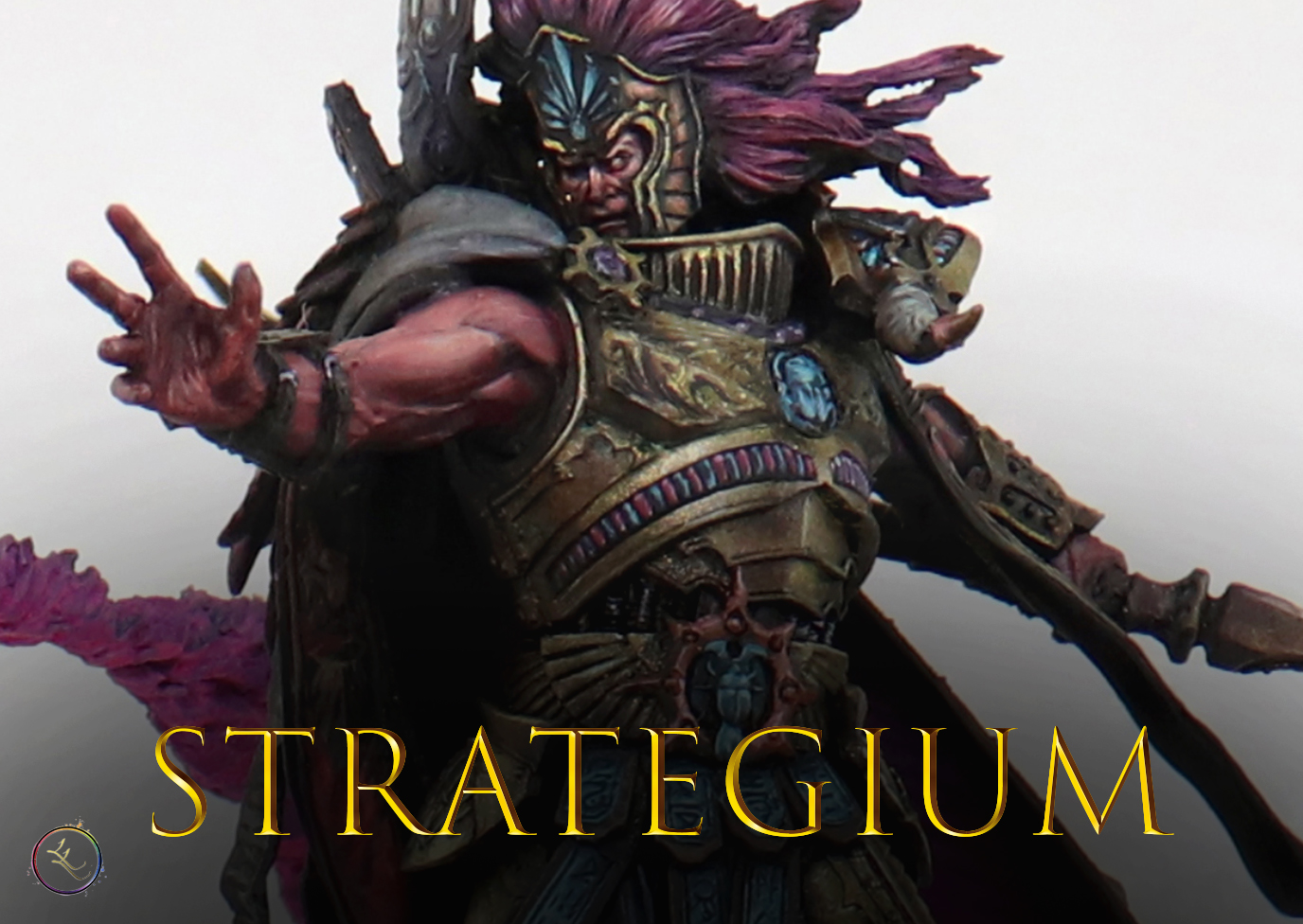
Horus Heresy v2.0 Article – How to use Psychic Powers
“But no more shall the threat of sorcery be allowed to taint the warriors of the Astartes. Henceforth, it is my will that no Legion will maintain a Librarius department. All its warriors and instructors must be returned to the battle companies and never again employ any psychic powers.
Woe betide he who ignores my warning or breaks faith with me. He shall be my enemy, and I will visit such destruction upon him and all of his followers that, until the end of all things, he shall rue the day he turned from my light.”
The Edict of Nikea, 001.M31.
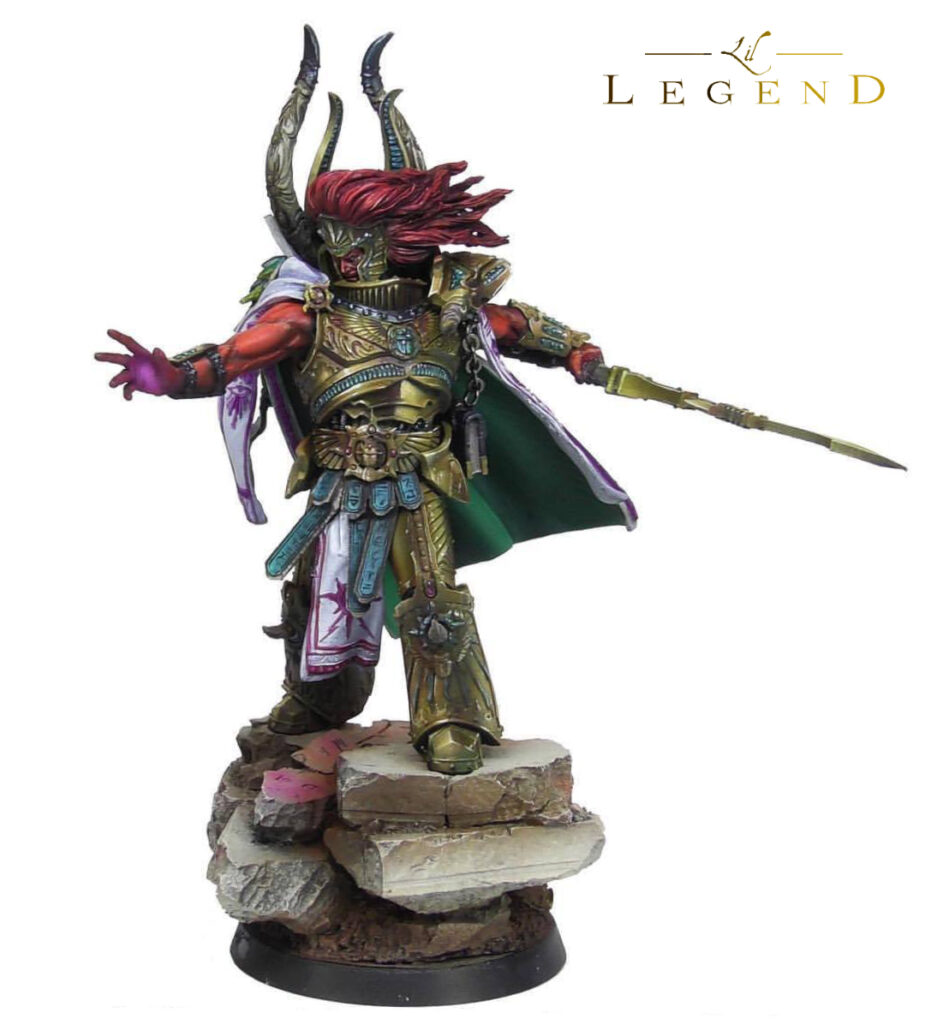
Psychic powers have been a fundamental part of the Rogue Trader and 40k background since the beginning. Outside of the Thousand Sons and some Daemons of the Ruinstorm Forces, they have not been a fundamental part of 30k due to their scarcity of units that can employ them.
This article will explore how psychic powers and their rules have changed under the new edition of Horus Heresy. This is one of the areas of the game that has undergone the most radical changes. And for the better!

There is no longer a psychic phase! Instead, a psyker now employs their power(s) in the phase most relevant to their use. I cast a psychic power that summons daemons or affects movement is `cast` in the movement phase. A psychic shooting attack is utilised in the shooting phase. An assault power in the assault phase. All other powers will tell you when they activate.
This speeds the game up, considerably. This refelcts the design ethos of this edition. Less `downtime` for the opponent gives a more satisfying experience overall.
Casting Powers
So how does a witch… sorry, psyker utilise their power?
You no longer have to create a psychic pool. Instead, to cast a power in the appropriate phase, a psyker has to make a Leadership Check. If the test is passed, then the power is either fully cast or improved – something we will return to later. This is called a Psychic Check.
By using the Leadership characteristic, the army lists can easily show the strength of the psyker compared to others. An Astartes chief librarian is more likely to utilise their gifts more easily than a militia witch. It also allows potential nuances to be added at a later date where a character may gain a bonus to leadership for casting certain disciplines. We will have to wait and see.

Perils of the Warp
What happens if the psyker fails their leadership check? This is where the traditional `Perils of the Warp` re-enters the game. Although there are some exceptions, a failed leadership check triggers the Perils of the Warp rule. However, the old table of effects has been removed and instead replaced with simple d3 wounds.
Yes you can no longer blow yourself up. BOOOO.
These wounds can be allocated to the psyker or amongst the unit they are in. Sometimes it`s tough having a friend who connects to the Warp. Vehicles instead suffer d3 Hull Points, so watch out Osiron dreads.
Psychic special rules
Under the previous system, both players had a pool of dice they could utilise to either fuel their powers or try to deny their opponents. Unless you had a psyker in your army, then the chance of dispelling opponents’ psychic abilities was extremely unlikely. And even then, coming up against Thousand Sons felt like a tidal wave of psychic activity.
The rule Adamantium Will is now the only `natural` way to defend against psychic attacks. Like many of the new versions of special rules, Adamantium Will has a specific number attached to it, e.g.: Adamantium Will (5+). Rather than dispelling the psychic ability cast against a unit, this now grants an invulnerable save against any Force or psychic attack that causes a wound. This also works against Perils of the Warp. In some cases, this will protect your psyker from a failed Psychic Check. In many ways, this is now more effective, as those units with Adamantium Will rule are more easily able to shrug off the effects of psychic damage.
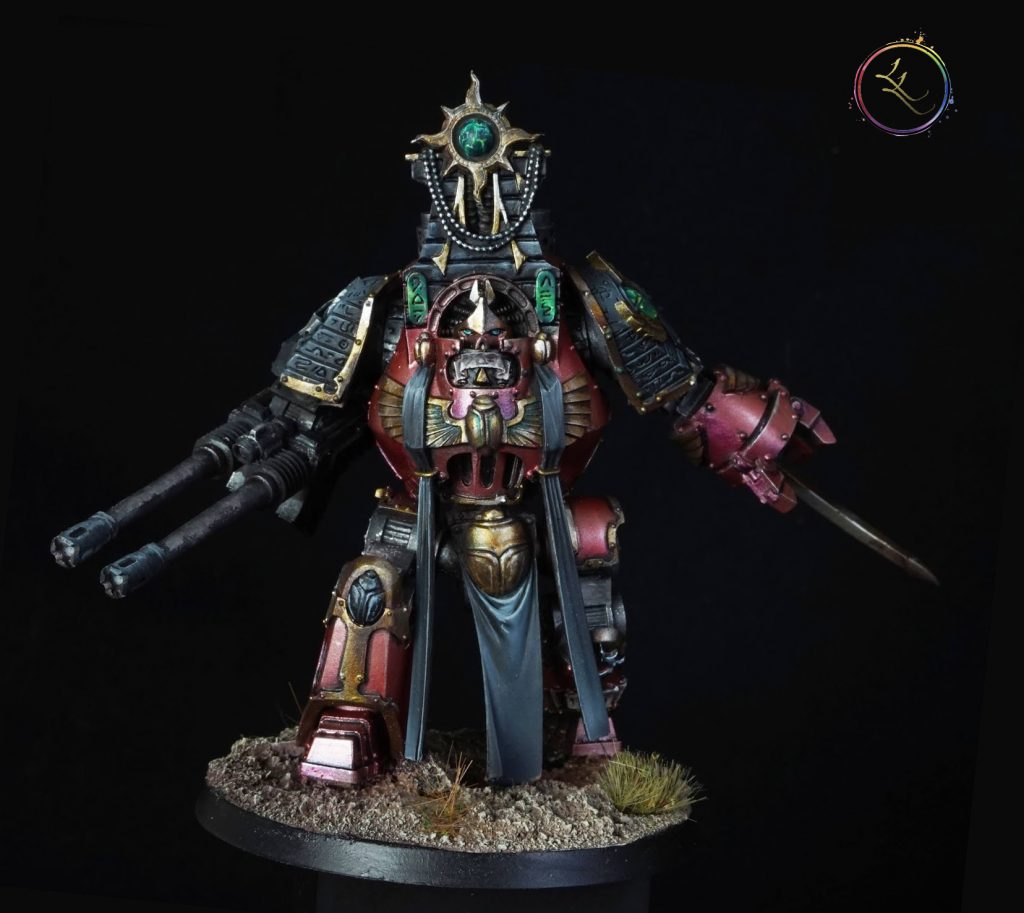
Force has been a common rule in the 40k family of games since 2nd Edition and has always been associated with the esoteric weapons used by psykers ranging from swords to staffs. The Force rule continues to be linked to these weapons and all Force weapons have this rule associated with them. By successful making a Psychic Check, the strength of any attacks made with a Force weapon are doubled – as usual, a failure will result in Perils of the Warp. This simple rule now means that most Force weapons will have a strength value that can threaten vehicles, and cause Instant Death on opposing units and rival weapons such as powerfists or chainfists.
These changes are beneficial for the game, they increase the speed of the game; the rules are intuitive and `fit in` with the standard rules of attacks, leadership rolls and damage allocation. It also involves less `downtime` for the opponent and a feeling that they cannot react to the psychic powers. Now, with the use of reactions, psychic shooting attacks can be reacted to. Or if a unit of daemons is summoned near you in the movement phase, you can use a reaction to move towards, or away from, this new threat.
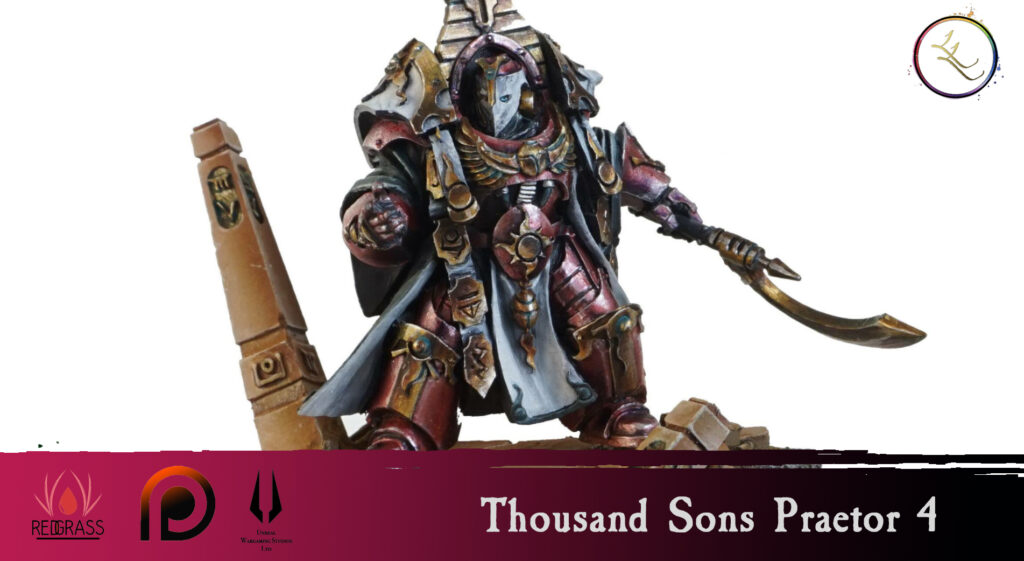
Core Psychic Disciplines
The core rulebook for Warhammer: The Horus Heresy, gives us six generic disciplines that all psykers – regardless of army list – have access to. Each psychic discipline has two powers, and both are known to the psyker. Although on the surface this would appear to offer less choice than the first edition, it actually means that there are fewer potential interactions that can create a negative play experience. We all have heard of those army lists where a combination of unit or legion rules, combined with a psychic power, created a combination that was difficult to counter for the opponent.
Now, with just a single pair of powers for each discipline, your opponent can less likely be caught off guard or be subject to something that cannot be countered. It also creates more stability in army selection – a common theme in the new edition. By knowing that you will have both abilities, you can plan strategies around using them.
The army list explains which of the core disciplines a unit has access to. The majority of the time, a psyker can only select a single discipline but they have clarified in the core rules, that some units will be able to select more than one. This is likely to be future-proofing for units such as daemons or Magnus rather than more common units such as librarians or Militia witches.
Regardless of which discipline(s) are selected, all psykers gain a bonus shooting ability: Aetheric Lightning. This represents the psyker calling up the power of the Warp as a direct attack – think Emperor Palpatine. Like most psychic shooting attacks, this has the Force trait so the Strength of the attack can be increased on a successful Psychic Check.
Another feature of many of the core disciplines is that non-shooting abilities do not need a Psychic Check. However, the psyker can choose to make a Psychic Check in order to make the power more potent. I personally like this as it gives options in game and the more options people can make, enhances the games and opens up more strategy. However, failed checks mean a Perils of the Warp and a failure for the power to manifest. The life of a witch is truly reward vs. risk.
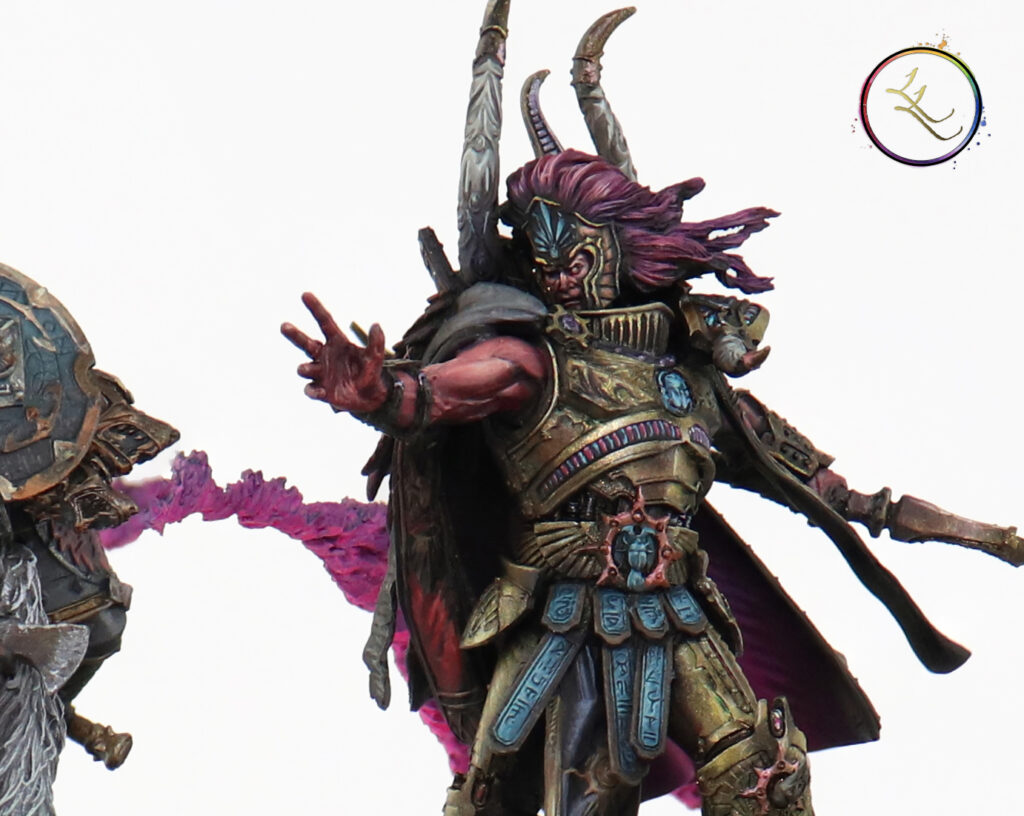
Biomancy
This discipline fortifies the very cells of the target, emboldening muscle to outperform its genetic potential.
I’ve had mixed fortunes with this discipline. One power adds strength and toughness to the psyker and their unit, but only on their turn! You charge and gain the bonuses, but if the combat carries on into your opponent’s turn, the buffs wear off. This has caught me out.
The weapon power of Biomancy increases the psykers melee attacks to S10 and rending. This will allow them to threaten any vehicle or monstrous creature in the game. It’s a great power for the indivdual Even some Primarchs will think twice. However, this power only manifests with a successful Psychic Check, and so you have to be confident that this can manifest when you need it.
Divination
Foresight. The power to see the future. Useful not just for lottery wins but also for dodging mass reactive rounds. In-game, a psyker who looks along the paths of fate can grant a single nearby unit Precision Shots and Precision Strikes on a `to-hit` roll of 6. If the psyker can strain themselves with a Psychic Check, this can increase to a 5+ `to-hit` roll. No character is safe. Especially if the friendly unit has lascannons…
During the Shooting phase, a Diviner-psyker can cast a dart that seeks out an opponent with S6 AP2 with the unerring accuracy of a sniper. This power can only be manifested with a Psychic Check.
Pyromancy
What is a list of psychic abilities without one fire-based power? Fire cures all and is hugely attractive – especially if you can manifest it within a warlord titan. If you know, you know…
This is the most aggressive discipline (as you may expect) but it not within some tactical nuances. The first power allows a psyker to summon large blast templates of pyrotechnic power. As well as causing damage, this causes Difficult Terrain to last for a turn where the template lands. Dangerous Terrain is much more dangerous in this edition as no armour saves are allowed. This allows a Pyromancer to control board space and can limit where units may be able to move. With a Psychic Check, of these templates can be created.
The melee weapon of this discipline must be manifested with a Psychic Check. As well as creating melee attacks of S6 AP3 it also creates a small blast template centred on the attacking model. No-one likes it when the pyromancer starts swinging.
Telekinisis
Ever fancied showing Professor X how its done? A telekinetic is up to the challenge. A psyker who manifests this discipline has the power to cast an Aegis around nearby friends (and foes if they are too close) granting them invulnerable saves against attacks that manifest outside of the range of the power. This is similar to the kine shields utilised by the Thousand Sons in several Black Library novels. If the psyker wishes to take a risk and make a Psychic Check, the invulnerable save of the Aegis is increased.
Sometimes though, a Telekinetic wants to attack things. This psychic weapon needs a Psychic Check to manifest but does so with a S8 AP4 small blast template. The Sunder rule is icing on the cake.
Telepathy
Most telepaths typically are subtle and manipulative. Not so on the battlefields of the Age of Darkness. A telepath is best used to weaken their enemy – in many ways the opposite to the Biomancer. One of their psychic abilities can prevent enemies from making Reactions on a successful Psychic Check. This power is unusual in that it can only manifest on a successful check and there is no option for a weaker version. However, potentially the combination of this ability before a devastating charge or shooting attack could swing the game. Subtlety is sometimes more powerful than overt power!
In a similar manner, the shooting psychic attack of the Telepath causes an enemy unit to hallucinate. In game terms, this makes all weapons that cause a hit on the hallucinating unit to make a Pinning check. Pinning tests are more dangerous in this edition and with lower leadership scores, more likely to be successful. The more hits are scored, increases the chance that the Pinning test will be failed.
Thaumaturgy
One for the Vampire: The Masquerade players here… One of the abilities of this discipline allows the psyker to give wounds back to friendly units. In a similar way to Telepathy, this is one of the few non-attacking powers that must have a successful Psychic Check in order to manifest with no option for a weaker use.
Offensively, a Thaumaturgist can cleanse enemy units. By passing a Psychic Check a template attack is made. This attack is more devastating against daemons so is a good option if your opponents make regular use of the Neverborn.
Loyalist Legions Psychic Rules
Some of these rules will be generic to any Force that utilises the Astartes army list and will include information on wargear and specialist consuls. The final section will focus on Loyalist-legion specific psykers (yes, Space Wolves – that includes you) and legion-specific psychic disciplines.
Wargear
Psychic Hood – in the first article on this series, we explained how the old concept of dispelling psychic powers has been discarded in favour of using the Leadership characteristic to pass a Psychic Check. The Psychic Hood traditionally made dispelling enemy psychic abilities much easier but with the new system, a new method had to be introduced. Instead, a Psychic Hood now works on all enemy psykers within 18” and line of sight. The enemy psyker now reduces its leadership by -2 for the purposes of Psychic Checks reducing the likelihood of passing.
Force Weapons – The traditional forms of psychic weapons still exist in the Legiones Astartes army list: sword, maul, axe and staff. In base profiles, these share the same profile as the equiverlant power weapon. However, each Force weapon also contains the Force trait. As mentioned in a previous article, on a successful Psychic Check, this allows the psyker to double their strength profile. In practical terms this means a Force sword could reach Strength 9 while a Force maul reaches Strength 10!
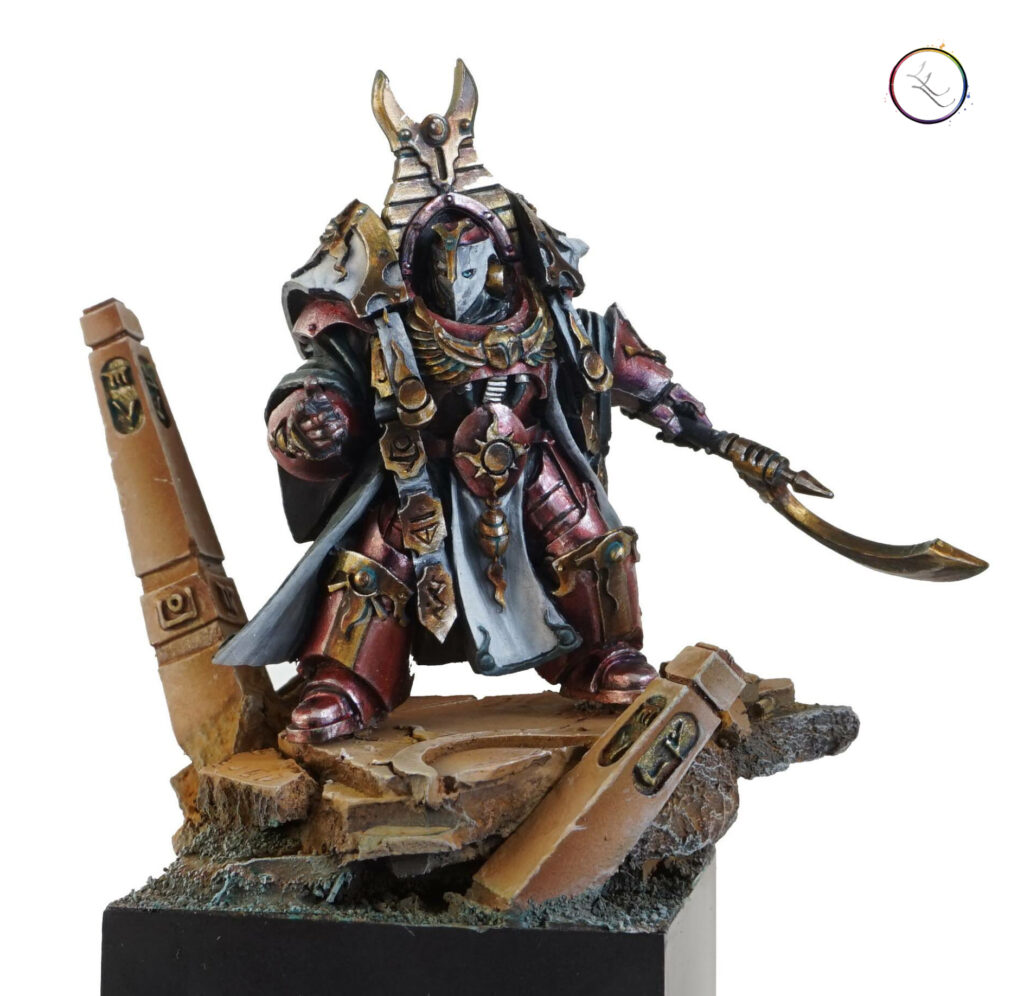
Consuls
There are two consuls within the Legiones Astartes army list that allows the use of psychic powers. One in the Librarian and the other is the Esoterist.
Librarian – technically banned under the Edict of Nikea, the Librarians were the members of the legons intended to study the psychic arts in a safe manner. As the Heresy began to use more of the Warp, all legions began to reactivate their librarius. In game terms, this is the basic psyker for the Astartes Forces. They can choose any one of the core disciplines from the rule book, or – if their legion has one – can choose a legion-specific discipline. They also have access to psychic hoods and Force weapons.
Esoterist – the Esoterist occupies an odd place in the Astartes Legions army list. As knowledge of the Warp became more widely known, many librarians began dabbling more deeply into its secrets. Some Astartes – such as Maloghurst of the Sons of Horus – also began to teach themselves arcane arts to summon forth the Neverborn of the Warp to serve them.
The Esoterist represents these Astartes who have opened themselves up in this way. One area to clarify is that these are not Traitor only! Loyalist legions also had access to Esoterists but did not fully understand what they were dabbling in or the dangers it represented.
In game terms, the Esoterists offer up a few options for list-building as well as a unique psychic discipline – Anathemata.
For list-building, having an Esoterist in your Force allows you to select up to three non-compulsory Troops or Elites chosen from the Daemons of the Ruinstorm army list. These units are selected as normal (costing points – the `free` summoning of the previous edition is now gone) and must start play in Reserves.
Like the core disciplines, the Anathemata power has two core abilities: one allows you to summon the units you selected at army list creation and the second is a psychic weapon.
To summon the units, the Esoterist has to place a 3” blast marker within 12” of themselves. This marker then scatters as per the core rules. Its final resting point then allows a single daemon unit to enter from reserves using the blast marker as its entry point. The marker is then removed from play.
If the Esoterist wishes to make a Psychic Check, then the marker is not scattered at all.
The psychic attack from the Anathemata power can only be used after a successful Psychic Check. It has a high number of attacks at a reasonable strength but its two most interesting rules are deflagrate and Santic. Deflagrate is the same rule as found with volkite weapons and so increases the potential of causing more damage to the target. Santic wounds all daemons on a 2+ and Forces successful invulnerable saves from daemons to be re-rolled.
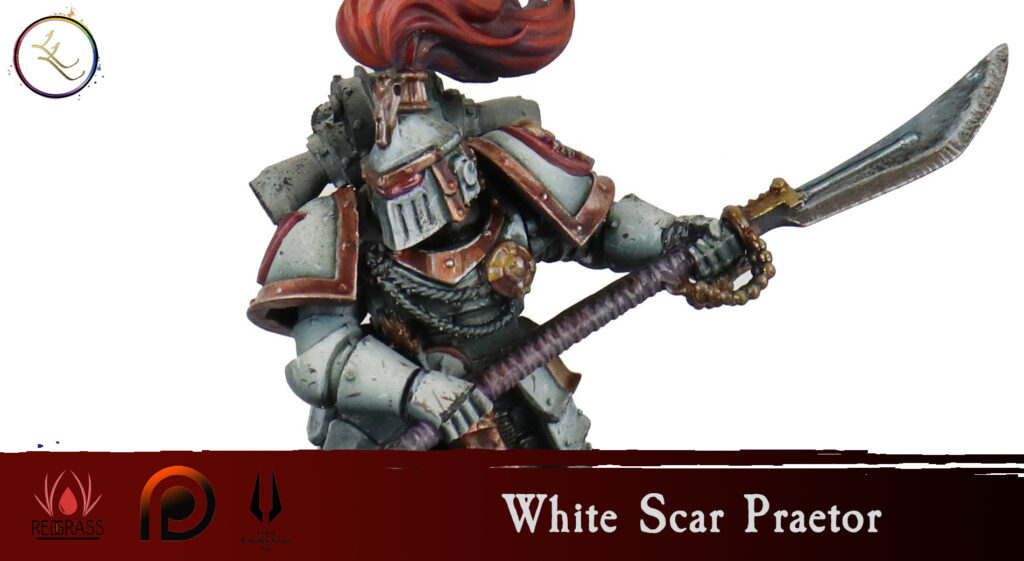
White Scars: Stormseers
Stormseers have existed in the White Scars legion for many years and finally they have specific rules for Horus Heresy. This an upgrade to a Legion Consul and can be from any type (power armour or terminator armour-equipped). Like a librarian they have access to Force weapons and psychic hoods but unlike a librarian, they can only choose from specific disciplines: Storm`s Fury (unique to the White Scars), Divination, Telepathy or Thaumaturgy. All Stormseers also have Adamantium Will (4+) as well.
Like all the core disciplines, Storm`s Fury contains a psychic weapon and a second power. Unlike several psychic weapons, a Psychic Check is not needed to use the power. However, as it contains the Force trait, a successful Psychic Check doubles the strength of the attack. The attack represents lightning being summoned from the sky and is a large blast with barrage and shock pulse (yep, you can shut down vehicles for a turn if you`re lucky!).
The second power is cast during the Movement phase. If granted, the psyker and all units within 6”, Fleet (2) until the start of your next turn. With a successful Psychic Check, this is increased to Fleet (4) allowing your units to quickly close with the enemy in the way of the White Scars.
Space Wolves: Caster of Runes
Like the White Scars, the Space Wolves have brought along their shamanistic psykers to the new edition. As they follow all the normal rules for using their disciplines and powers it clearly shows that they are psykers and not just using the ‘Power of Fenris’ and are still bound by the Edict of Nikea.
A Caster of Runes is selected in the same way as other Consuls and may wear any type of armour. Like the Stormseer, the Caster of Runes may select the VIth legion specific discipline of Winds of Fenris, or may select Divination, Telekinisis or Biomancy from the core rulebook. They also gain Adamantium Will (4+) and have access to a psychic hood and Force weapons.
Winds of Fenris` shooting attack may always be used without a Psychic Check and uses the template for the equiverlant of a heavy flamer. However, the attack also has the deflagrate and Force rules allowing for some nasty surprises with a successful Psychic Check to increase the strength of the attack.
The second power is cast on a friendly unit within 6” that must be infantry, cavalry or dreadnought-type. The unit is then granted Shrouded (5+) until your next shooting phase. If a Psychic Check is passed then this is increased to Shrouded (3+) but a failure still grants the original effect (along with the Perils of the Warp effect).
Salamaders: Fury of the Salamander
Although they do not have a specific consul like the White Scars or Space Wolves, the Salamanders do have access to a legion-specific discipline. However, this can only be ‘unlocked’ if the Awakening Fire Rite of War is selected.
Fitting with the concept that this Rite of War represents the destructive side of the legion and its reliance on the Promethean Cult for guidance in the absence of Vulkan.
As we have seen previously, this psychic discipline has two elements: one shooting and one power that affects nearby units. The shooting attack uses a template to unleash a Strength 7 attack with the Pinning, Deflagrate and Shell Shock (3) special rules. This must have a Psychic Check to successful be used but its affects could set up later charges or attacks very effectively.
The second power always requires a Psychic Check in the movement phase to activate. If successful, all enemy models within 18” treat open terrain as Difficult Terrain and all Difficult Terrain as both Difficult and Dangerous Terrain. With the changes to Dangerous Terrain this could be an effective power depending on the terrain set up on the board.

Darren has had a strong interest in the Sons of Horus, and the Heresy, since first reading the Bill King short story in the ‘Lost and the Damned – Realm of Chaos’ tome at an impressionable age.You can find Darren on the Age of Darkness Podcast & On Twitter!

Horus Heresy Psychic Powers Horus Heresy Psychic Powers Horus Heresy Psychic Powers Horus Heresy Psychic Powers Horus Heresy Psychic Powers Horus Heresy Psychic Powers Horus Heresy Psychic Powers Horus Heresy Psychic Powers


